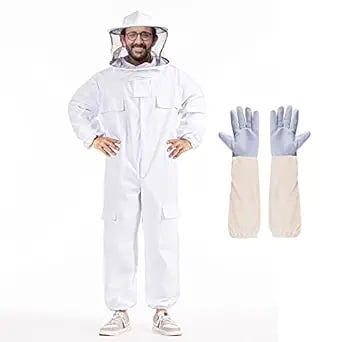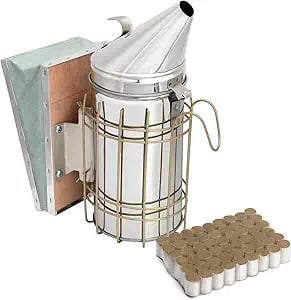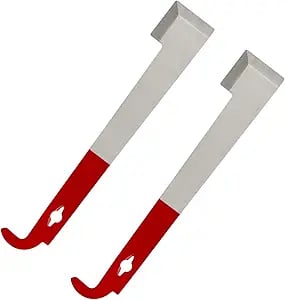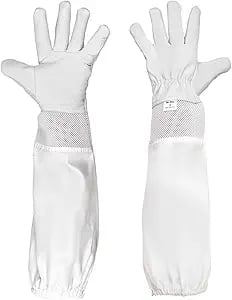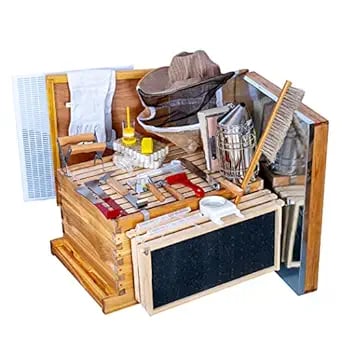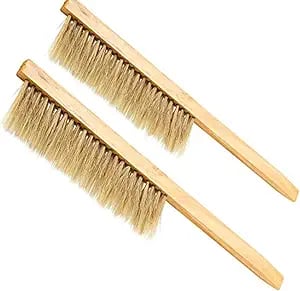Beekeepers Near Me: Finding Local Buzzworthy Knowledge and Community
Discover how to find trusted beekeepers near me, connect with the local experts, and learn essential tips for starting your own beekeeping journey sustainably.
BEE KEEPING
As an Amazon Associate, I earn from qualifying purchases. This means I may earn a commission if you click on an affiliate link and make a purchase, at no extra cost to you.
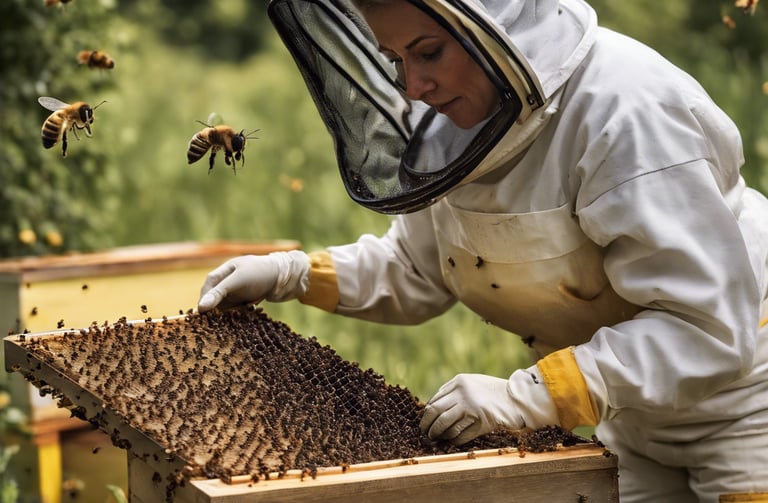

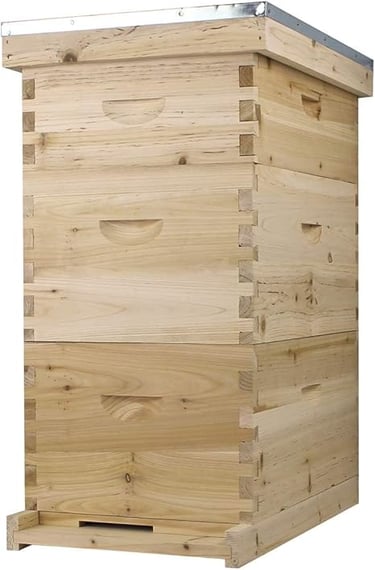

Bee Hive Complete with Frames & Wax Coated Foundations (NU8-2D1M)
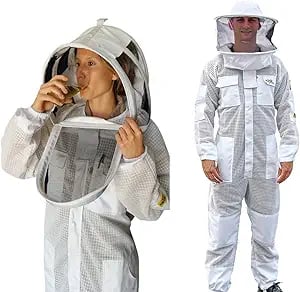

Three Layer Mesh Ventilated Beekeeping Suit, Beekeeper Suit with Fencing & Round Brim Hat, Comfortable, Sting proof Anti Wasp Suit
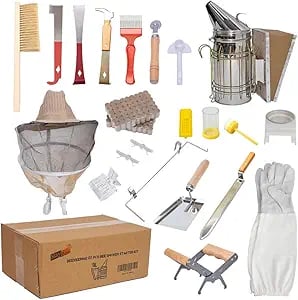

Ready Hour, Emergency Meal Entrées, Real Non-Perishable Meals, 25-Year Shelf Life, Portable Flood-Safe Container, 120 Servings
Why Connect with Local Beekeepers
There’s something valuable in having access to local insights, especially in beekeeping. Bees, after all, are creatures deeply influenced by their specific environment—plants, weather, and even local pests all play a role. Local beekeepers are often the best source of region-specific advice, from maintaining healthy bee populations to understanding native flora and pollinator-friendly plants. Building these relationships can deepen your understanding and connection to local biodiversity and conservation efforts (National Geographic Society, 2020).
Tips for Finding Beekeepers Near You
Not sure where to start? Here are some approaches that feel organic and community-oriented:
Check with Local Agricultural Societies or Cooperative Extensions: Many agricultural hubs and local agricultural extensions support beekeepers with advice, educational programs, and sometimes even starter kits (United States Department of Agriculture, 2023).
Farmers' Markets and Local Food Co-ops: Many beekeepers sell their honey or products at farmers' markets. Strike up a conversation to learn more about beekeeping, or even ask about upcoming events or local meetups (American Beekeeping Federation, 2022).
Community Boards or Social Media Groups: Many communities have beekeeper associations or interest groups. These can be excellent resources for finding like-minded folks, getting involved, or even learning how to start with bees yourself.
What Every Beginner Should Know
Before diving headfirst, it’s helpful to know the essentials. Beekeeping isn’t just about honey; it’s about cultivating an environment where bees can thrive. Here are some basics:
Understand the Role of Beekeeping Supplies: While beekeeping requires equipment, it’s more about knowing what’s best suited for your specific needs. Items like hives, bee suits, and smokers are common, but talking with local beekeepers can reveal specific supplies for your area (Bee Culture Magazine, 2021).
Consider the Beekeeping Process Seasonally: Bees require different care depending on the season, and experienced local beekeepers often know just what adjustments are needed (National Agricultural Library, 2023).
What to Look For in a Local Beekeeper (and How to Avoid Getting Stung)
When it comes to finding a local beekeeper, not all are created equal. Some may be driven by a passion for sustainability and conservation, while others might be in it purely for profit, sometimes at the expense of quality or ethical practices. Here are a few tips on what to watch for, so you connect with those genuinely dedicated to the craft.
Transparency About Practices
Look for beekeepers who are open about their methods. Ethical beekeepers will gladly explain their approach to hive management, including how they treat for pests, handle honey extraction, and care for their bees. Beware of anyone who’s evasive or vague—this could be a red flag (US Environmental Protection Agency, 2023).Knowledge of Local Flora and Bee Health
Skilled beekeepers often have deep knowledge of local plants and their impact on bee health. They’ll know which plants in your area contribute to bee wellness and honey quality. If you find yourself dealing with someone who can’t tell the difference between clover and dandelion, consider looking elsewhere.No Pressure on Products
A reputable beekeeper is there to educate, not upsell. They may have honey or beeswax products available, but they won’t push sales on you. Instead, they’ll focus on sharing information and experiences. If you’re feeling pressured to buy, it may be more about their bottom line than bees.A Strong Community Presence
Legitimate beekeepers are often involved with local agricultural groups, environmental organizations, or farmers’ markets. Being a known entity in the community builds trust, and these associations usually attract reputable members. Check if they’re associated with local groups or have solid recommendations from others (American Beekeeping Federation, 2022).Willingness to Answer Questions and Offer Tours
If you’re considering starting beekeeping or buying products, see if they offer tours or allow visits to their hives (when safe and appropriate). Many trustworthy beekeepers are happy to share their setup and educate the public about bees. Reluctance to let others see their practices could be a sign of something amiss.Price Sensitivity
When buying honey or beeswax, watch out for excessively high prices justified by vague claims of “special” qualities. Quality honey isn’t cheap, but it also shouldn’t come with a luxury markup unless there’s a clear reason, like rare, seasonal varietals.
Building Connections in the Beekeeping Community
Beekeeping is as much about community as it is about bees. Whether you’re interested in starting your own hive or just want to support pollinators, connecting with local beekeepers can open doors to events, workshops, and even volunteer opportunities.
Conclusion
Connecting with beekeepers near you brings the knowledge and practices of sustainable beekeeping into a more personal light. Whether you’re looking to start a hive, support pollinators, or simply learn, the journey begins with discovering the vibrant community right at your doorstep.
If you liked this article, you’ll love these:

